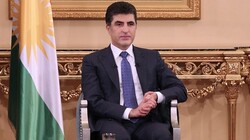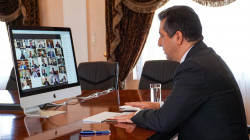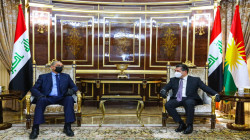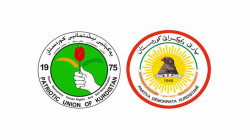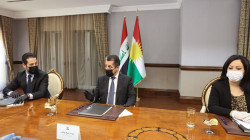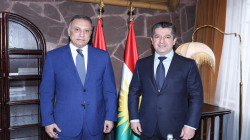Kurdish Leader Barzani says March Uprising achievements are a legacy for future generations
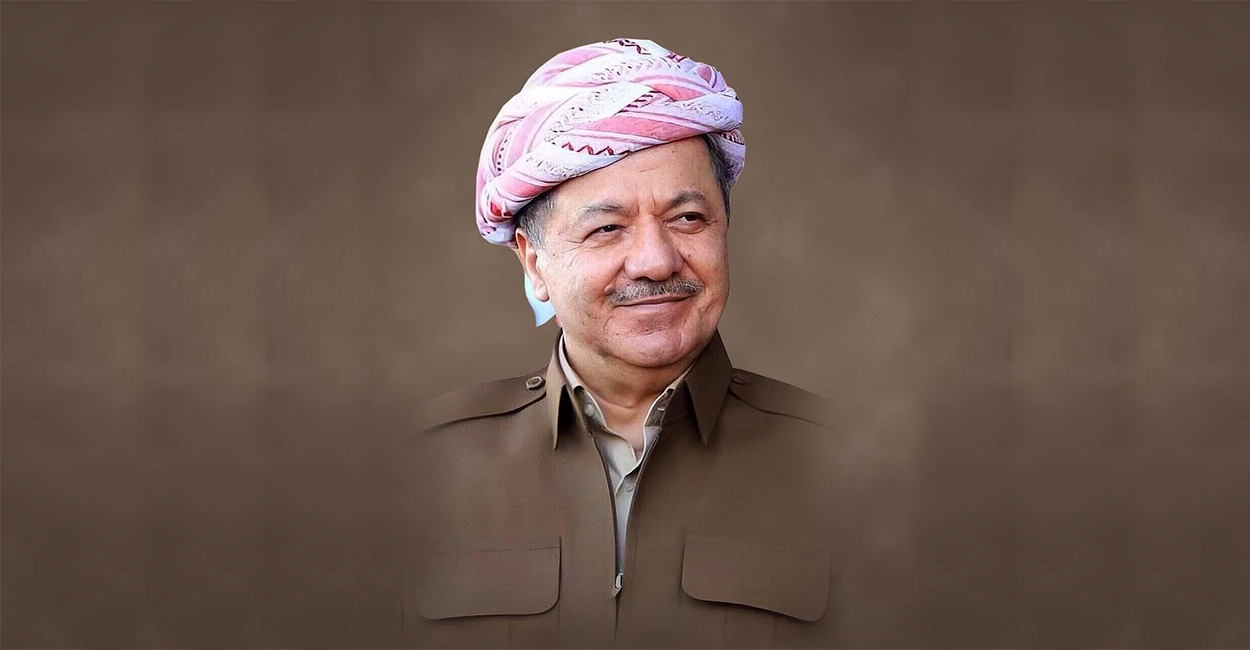
Shafaq News/ Kurdish leader Masoud Barzani on Tuesday said that the achievements of the Kurdish people's uprising, known as the "March Uprising," belong to the people of Kurdistan and future generations.
In a message marking the anniversary of the uprising, Barzani extended greetings to the families of "the noble martyrs, the brave Peshmerga fighters, and all nationalists, activists, and free spirits, and the entire Kurdish nation."
"The uprising is an extension of decades of struggle and is the result of the resistance, efforts, and blood of the masses and the struggling forces in Kurdistan," he added. "It has become a new beginning and a source of hope for our people."
"The people's uprising against the institutions of oppressors and occupiers was a clear message that despite the strength of the occupiers, the will for a free and dignified life is firmly rooted and enduring in the soul of the Kurdish individual."
"The achievements of the uprising belong to the people of Kurdistan and future generations," he continued, calling for upholding and protecting its accomplishments, goals, and values. The Kurdish leader stressed that those values should be "neither forgotten nor distorted under any circumstances or pressures."
Saddam Hussein's record of brutally suppressing even mild dissent is well-known. When the March 1991 uprising confronted his regime with the most serious internal challenge it had ever faced, government forces responded with atrocities on a predictably massive scale. The human rights repercussions continue to be felt throughout the country.
In their attempts to retake cities, and after consolidating control, Saddam's forces killed thousands of unarmed civilians by firing indiscriminately into residential areas; executing young people on the streets, in homes and in hospitals; rounding up suspects, especially young men, during house-to-house searches, and arresting them without charge or shooting them en masse; and using helicopters to attack unarmed civilians as they fled the cities.
One year later, the fate of thousands of Kurds who were seized during the suppression of the uprising remains unknown. While many were believed to be in detention, the government has provided little information about their location and legal status.
Tens of thousands of Kurds who fled cities where the conflicts were particularly fierce remain displaced inside Iraq, and another 70,000 civilians are in refugee camps in Saudi Arabia, Turkey and Iran. Despite the harsh life they led in these camps or as displaced persons in rebel-held northern Iraq or in the southern marshes, they have not gone home because they are afraid or because their homes have been destroyed.
The cities of Karbala and al-Najaf, from which many of these Iraqis fled, were kept under tight military control and largely closed to independent observers who could monitor rights conditions. Religious life was sharply restricted. Many Shiite institutions were destroyed or badly damaged during the suppression of the uprising, or subsequently demolished on the pretext of "modernizing" the cities. Hundreds of clerics and their aides were arrested after the uprisings and have not been released. Religious activities at the remaining institutions were curtailed by the state.
Of all the Iraqis who have not returned to their cities since the uprising, the greatest number come from Kirkuk, a major oil-rich city that has been the subject of contention between Baghdad and Erbil. The homes of Kurds who fled the city following the uprising were either demolished or given to Arab families, as part of a long-standing government policy of promoting the settlement of Arabs in Kirkuk while reducing its Kurdish population.
Beginning in March 1991, the U.S. and some of the Gulf War allies barred Saddam's forces from conducting jet aircraft attacks by establishing the no-fly zone over northern Iraq and provided humanitarian assistance to the Kurds. On April 17, U.S. forces began to take control of areas more than 60 miles into Iraq to build camps for Kurdish refugees. In the Yeşilova incident in April, British and Turkish forces confronted each other over the treatment of Kurdish refugees in Turkey. Many Shia refugees fled to Syria, where thousands of them settled in the town of Sayyidah Zaynab.
In the north, fighting continued until October when an agreement was made for Iraqi withdrawal from parts of Iraq's Kurdish-inhabited region. This led to the establishment of the Kurdistan Regional Government and creation of a Kurdish Autonomous Republic in three governorates of northern Iraq.
